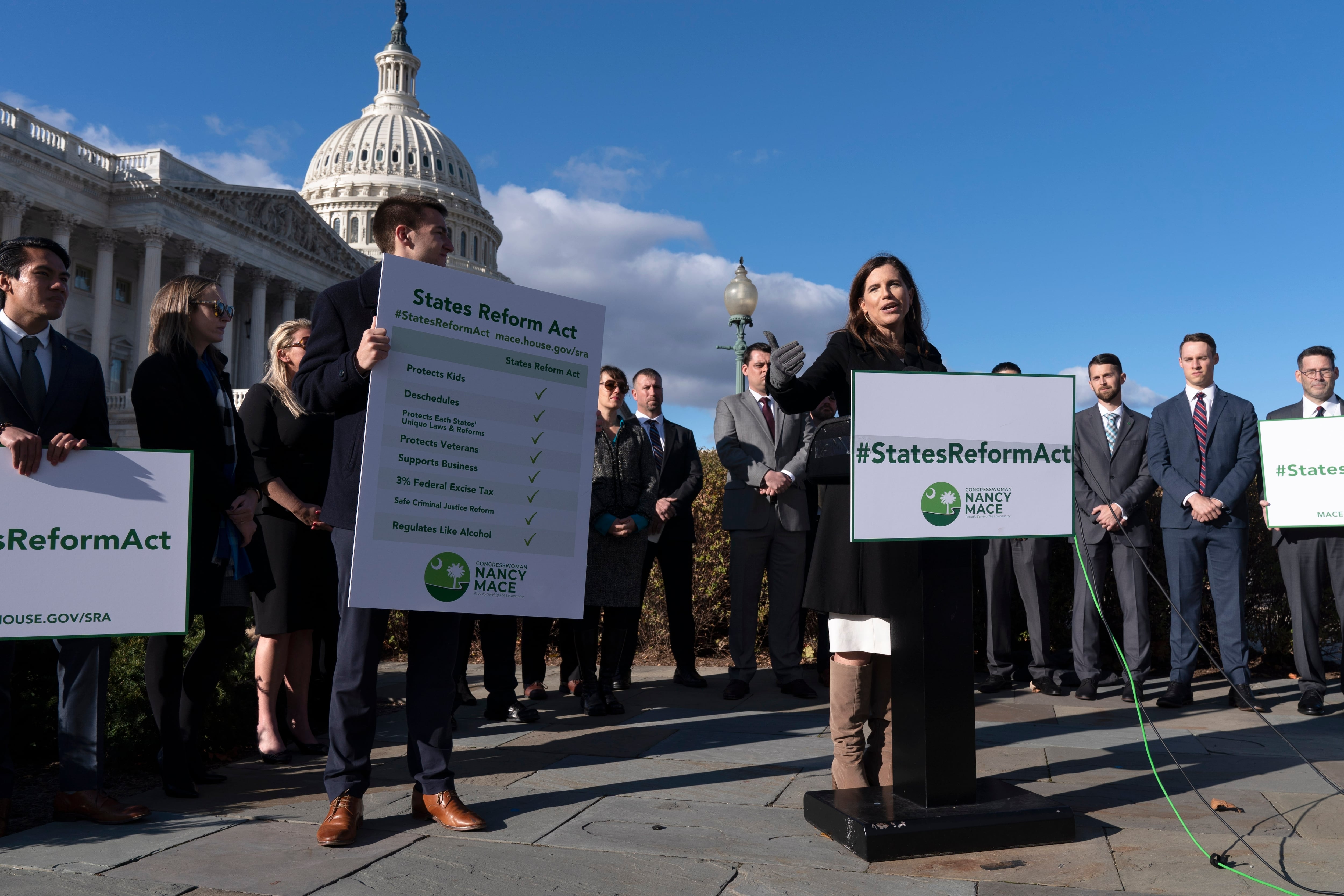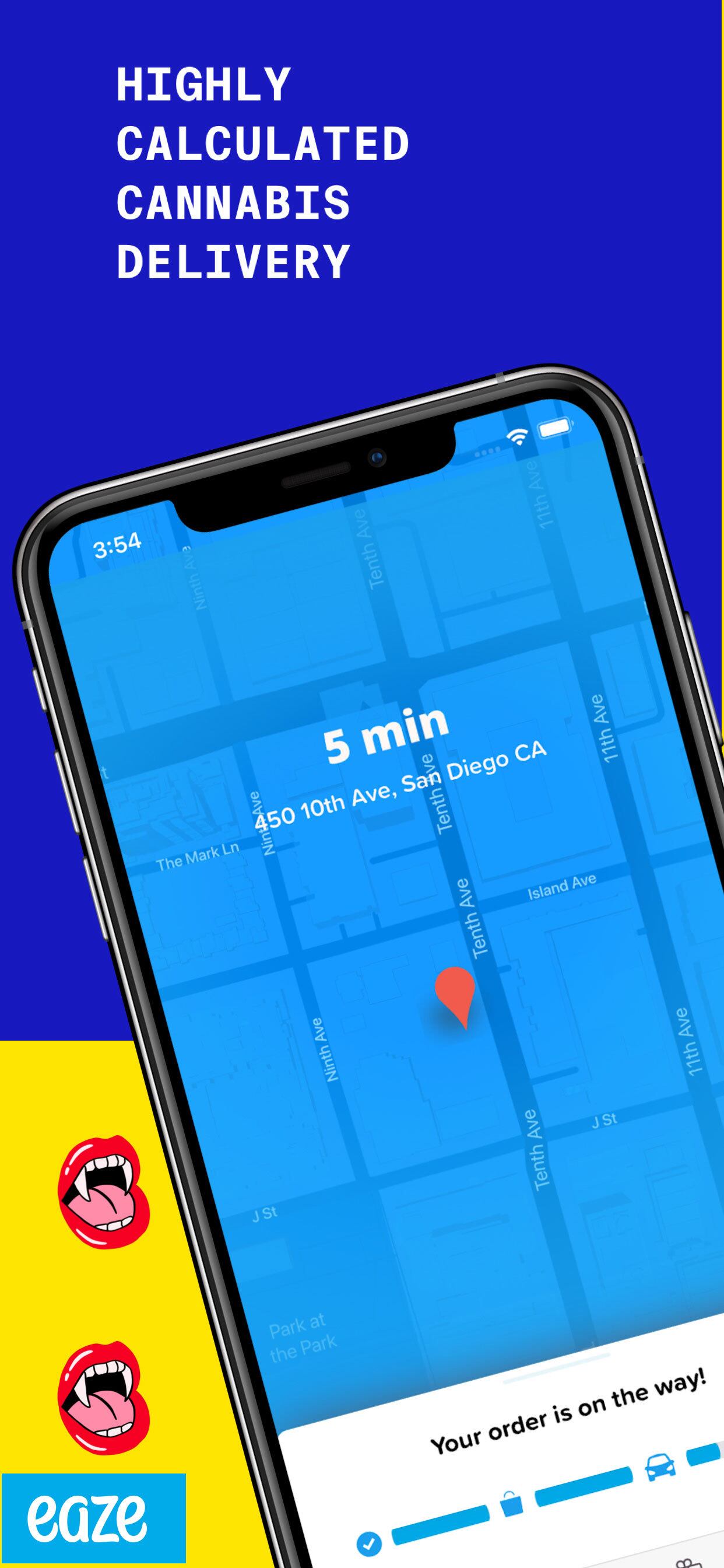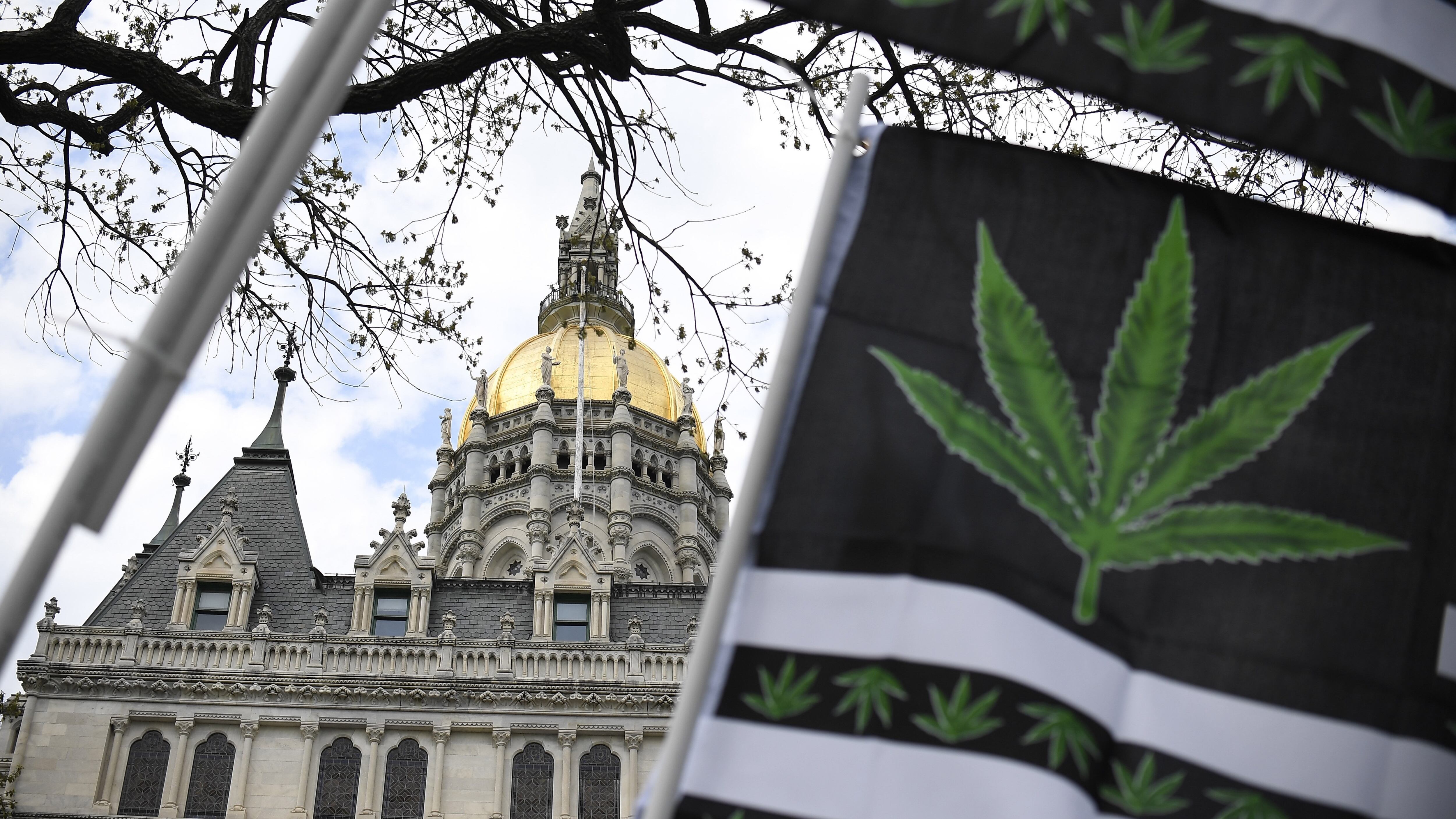After the tremendous progress cannabis reform made during the 2020 election, 2021 had a lot to live up to -- and it did.
Several key states in the Northeast, South and West legalized adult-use cannabis. Federally, lawmakers in the Senate and House introduced comprehensive cannabis legalization bills. Big tech dipped its toes into a previously taboo space and, after several turbulent years for the cannabis markets, mergers and acquisitions warmed up in a big way. All of these developments set the stage for 2022, as the clock ticks on cannabis reform in the run up to the midterm elections.
Dominos Fall on the East Coast
After New Jersey voters approved adult-use cannabis legalization in November 2020, experts anticipated a “domino effect” of legalization along the East Coast. And that’s just what happened in 2021.
After years of effort from Empire State lawmakers, New York legalized adult-use cannabis after former Governor Andrew Cuomo signed the Marijuana Regulation and Taxation Act into law March 31. However regulation didn’t get underway until Governor Kathy Hochul stepped into office. Critics say the delay was due to unrelated conflicts between Cuomo and the state Senate. That almost six month lag means adult-use sales might not kick off until 2023, but experts are still bullish. Investment bank Cowen estimates New York’s adult-use cannabis market could one day be the second largest in the nation after California, worth an estimated $3.1 billion by 2025.
“We think New York and New Jersey collectively are a $5 billion plus opportunity, but it will take time to build. Clearly, there's still a lot outstanding in terms of what the program will look like, as well as the timing in both New Jersey and New York,” Cowen analyst Vivien Azer told Cheddar News.
In April, Virginia Governor Ralph Northam signed into law a bill making it the first southern state to fully legalize cannabis, according to NORML. New Mexico joined neighboring Colorado and Arizona by legalizing adult-use cannabis in April. Connecticut followed suit in June with adult-use sales expected to kick off as soon as summer 2022.
Still, for all the states that moved forward with adult-use cannabis reform in 2021, one state took a few steps back.
South Dakota voters approved ballot initiatives in 2020 that would have legalized both adult-use and medical cannabis in the Mount Rushmore State. This year a lawsuit brought by two law enforcement officers and authorized by Governor Kristi Noem reigned in court after South Dakota’s Supreme Court overruled adult-use legalization on the basis of a technical violation, NPR reported.
Congress Gets Real About Reform
Senators Chuck Schumer (D- N.Y.), Cory Booker (D-N.J.), and Ron Wyden (D-Ore.) released their long-awaited bill to federally legalize marijuana in July. The Cannabis Administration & Opportunity (CAO) Act seeks to decriminalize cannabis, expunge marijuana arrest records, and re-invest in communities most impacted by the war on drugs. Still, the cannabis industry wasn’t too thrilled about a proposed 25 percent federal excise tax and powers given to the Food and Drug Administration to regulate the manufacturing and marketing of cannabis products.
Although the bill doesn’t currently have the necessary support to pass the Senate, experts say it could provide a roadmap for what a legalization bill might ultimately look like in the months and years to come.
One bill that does have substantial bipartisan support is the Secure and Fair Enforcement (SAFE) Banking Act. It has passed the House of Representatives five separate times, but faces opposition from several key lawmakers, including Schumer, Booker and Wyden. The senators don’t oppose the bill’s intentions so much as they have specific convictions about how policy should pass.
“I don't know about other members of the Senate, but I will lay myself down to do everything I can to stop an easy banking bill that's going to allow all these corporations to make a lot more money off of this, as opposed to focusing on the restorative justice aspect,” Booker said during a media appearance announcing the bill.
SAFE Banking was stripped from the final version of the National Defense Authorization Act in December, according to NORML, representing yet one more defeat for the popular bill.
In November, Representative Nancy Mace (R-S.C.) introduced a bill of her own: the States Reform Act. It marked the first time a Republican had introduced a bill seeking federal cannabis decriminalization, which the industry celebrated as an indication of the bipartisan nature of cannabis. The bill proposed significantly lower federal tax rates and regulating cannabis similarly to alcohol, meaning minimal FDA involvement, but its lack of equity measures could make it a tough sell for Democrats.

Big Tech Has a Moment
Big tech has historically been silent on cannabis with giants like Google and Facebook adopting the cautious stance of rejecting cannabis industry advertising altogether. 2021 marked a shift for several major tech companies.
In July, consumer tech giant Apple updated its App Store policy to permit applications that facilitate cannabis sales, as long as they are geo-restricted to legal jurisdictions. Cannabis delivery company Eaze had the first cannabis delivery app to launch in the store in July, according to a statement from Eaze.
“It’s hard to overstate how important this is to our company and the industry,” Eaze CEO Rogelio Choy said in a statement.
A few months later, CEO of Amazon Worldwide Consumer Dave Clark announced changes to the company’s drug testing policy. The e-commerce giant would no longer include marijuana in drug screening for job candidates unless the position is regulated by the Department of Transportation. Furthermore, Clark wrote that the company would be “actively supporting” the Marijuana Opportunity Reinvestment and Expungement (MORE) Act, which would legalize cannabis at the federal level.
“We hope that other employers will join us, and that policymakers will act swiftly to pass this law,” he wrote.
Uber CEO Dara Khosrowshahi teased in April that the ridesharing company was eyeing cannabis following its $1.1 billion acquisition of alcohol delivery service Drizly.
“When the road is clear for cannabis, when federal laws come into play, we’re absolutely going to take a look at it,” he said in an interview with CNBC.
Uber users didn’t even have to wait that long -- at least in Canada. Uber Eats added cannabis retailer Tokyo Smoke to its platform in Ontario. Although users cannot yet order for pickup, they are able to buy online and pick up their orders in local stores.
It’s hard to imagine what it might mean to have companies the size of Amazon and Apple entering the cannabis industry. Marijuana Business Daily CEO Chris Walsh forecasted during a speech at MJBizCon that it could have upsides and downsides.
“I don't know if Amazon getting involved in the cannabis industry is a good thing -- I'd say it's probably not -- but look at how the times have changed. And honestly getting their firepower behind legalization could be good. It could be bad if they shape regulations,” he said. “And that's the danger with legalization, with lobbying going forward is who's really going to determine what this looks like and influence the lawmakers.”

M&A Heats Up and the Return of Megadeals
After several difficult years for the cannabis industry, 2021 saw the return of billion-dollar deals.
In May, Tilray announced it completed its business combination with Aphria for an estimated $4 billion. The two cannabis giants agreed on an all-stock deal at the close of 2020. Tilray CEO Irwin Simon said the transaction positioned the company to take advantage of global cannabis opportunities, which are vital as companies bide their time before policy reform enables publicly traded multinational cannabis companies to enter into the U.S.
Then, retailer Trulieve Cannabis acquired Harvest Health and Recreation in an all-stock deal worth more than $2 billion. The acquisition created the third-largest U.S. cannabis operator by market capitalization, according to Viridian Capital Advisors, and it signaled that “billion-dollar transactions are back on the table.”
“We see several profitable large private companies that might find it attractive to go public via a merger with a large public company or a merger with a smaller public company,” a Viridian note read.
Two other notable acquisitions announced or completed in 2021 were Jazz Pharmaceuticals’ $7.2 billion acquisition of Epidiolex-maker GW Pharmaceuticals, and Pfizer’s planned acquisition of cannabinoid drug developer Arena Pharmaceuticals for $6.7 billion.
Viridian Capital Advisors wrote in a note that these deals foreshadow what’s to come for medical cannabis.
“We believe the medical cannabis market will migrate towards a pharmaceutical model with branded and patented treatments for various conditions and increased large multinational pharmaceutical companies' ownership,” the firm wrote in a note.
In the week ending December 17, Viridian tracked 306 transactions year-to-date in 2021, compared with 86 in 2020. Of those, 209 targeted U.S. companies with a record $10.1 billion in consideration. It isn’t just megadeals driving these numbers. According to Viridian, the valuation gap between the most prominent cultivation and retail cannabis companies in the U.S. and most other operators means that almost any acquisition will be accretive as multistate operators seek growth in advance of federal legalization.



